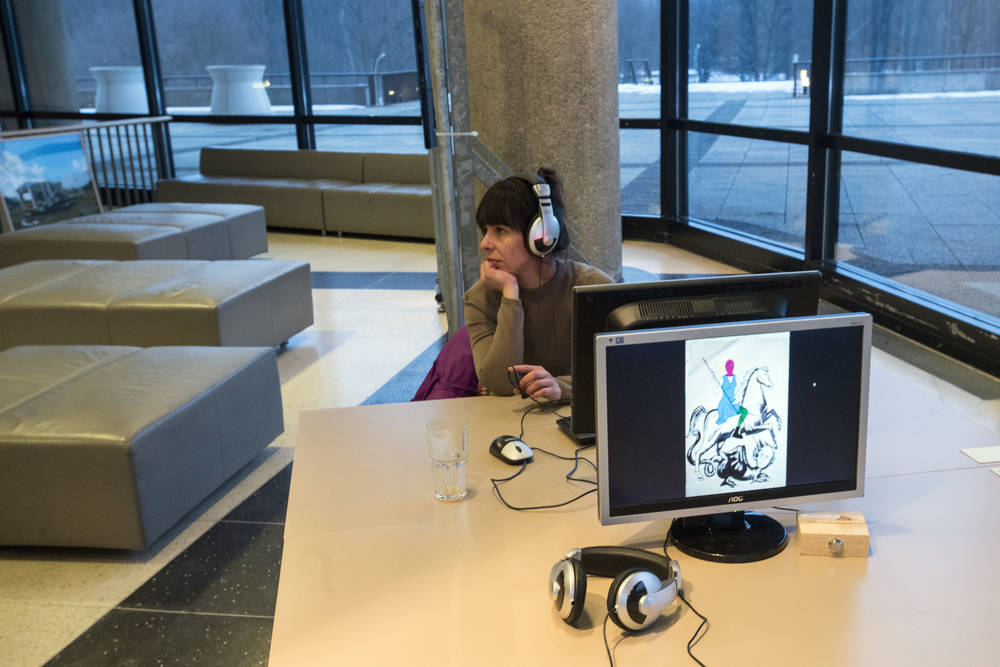filmed lecture, 42:27 min.
Ekaterina Degot addresses feminist art in Russia from the 1980s on in this presentation that focuses on the Russian art collective Pussy Riot soon after their imprisonment. Degot discusses the hesitance on the part of women to call themselves feminists in the post-Soviet former East, since defining oneself as a woman is reductivist within the Communist dream of a classless society. During Communism in the Soviet Union, private life represented the public sphere, a relationship destroyed in the early twenty-first century when capitalism invaded private homes and the public sphere was privatized and commercialized, making the political no longer personal. Pussy Riot’s emergence in mid-2011 is a reaction to this as well as to the current pro-motion of family values, homophobia, and male-dominated power structures in Russia. The collective is imprisoned on charges of hooliganism for performing the song Holy Madonna Chase Putin Away at a Russian Orthodox Church in Moscow in February 2012. Degot analyzes the response to this performance on the part of both left-wing political circles (who are reluctant to fully support Pussy Riot because of their refusal to proclaim atheism and anticlericalism) and simple orthodox believers (who for the first time since the early twentieth century started to question church officials). The image of a woman in a balaklava, on which Pussy Riot’s attire is based, is then an oppressed woman with covered face, and can be read through queer theorist Judith Butler’s notion of the pre-political body and space of
Ekaterina Degot appearance as defined by exception. Further, Degot refers to a “de-modernized subject” in Russia, where the nineteenth century returns with the woman as a passive and marketable art object. She uses this argument to challenge notions of artistic quality, pleading for evaluation of art through social efficiency.
Janine Armin
This lecture was presented at the 3rd FORMER WEST Research Congress: Beyond What Was Contemporary Art, Part One, Vienna, 2012.
